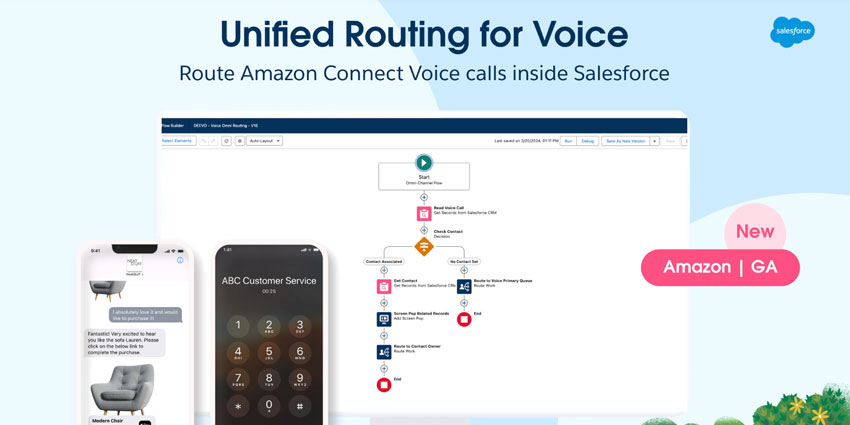CRM trends are evolving rapidly, thanks to changing consumer expectations, market dynamics, and the transformation of cutting-edge technology. Evolution in the CRM market is nothing new. Customer Relationship Management software is one of the fastest-growing and most valuable forms of technology in today’s world.
This market is expected to reach a value of $262.74 billion by 2032 as companies seek ways to become more customer-centric, data-driven, and strategically aligned.
Whether you’re adopting CRM technology for the first time, upgrading your solution, or searching for ways to get more value out of your system, it’s worth keeping track of the trends. Here are some of the major CRM trends you should watch in 2024.
1. Demand Strategic Alignment Influences CRM Trends
In the past, many larger enterprises leveraged CRM solutions from multiple vendors. For instance, the customer service group might use Zendesk, the marketing team Monday.com, and the sales team Salesforce. Unfortunately, this fragmented approach often caused significant issues.
Using different tools for various customer-facing teams made maintaining a 360-degree view of the customer journey harder, harmed cross-functional collaboration, and led to significant data gaps. As a result, companies are beginning to prioritize all-in-one CRM solutions that align sales, marketing, and operations, enabling a business-wide customer-first strategy.
At the same time, most organizations are looking for more flexible CRM platforms that integrate seamlessly with their contact center software and various other business tools. A flexible solution that aligns data from ERP systems, workforce management tools, and even collaboration apps can improve productivity and workplace efficiency.
2. AI and Machine Learning
Artificial intelligence and machine learning are having a significant impact on CRM trends. AI-powered analysis tools can enhance business insights through natural language processing and sentiment analysis. Generative AI solutions can help create personalized sales, marketing, and customer service messages that engage and delight consumers.
AI can improve operational efficiency by automating tasks associated with lead and data management, analytics and reporting, and even customer or lead follow-up. Plus, intelligent solutions ensure companies can leverage more value from their data, helping to detect patterns, trends, and opportunities accurately.
The potential of AI in the CRM landscape can positively impact every group using the CRM system. Marketing teams can use AI to qualify leads and create content. Sales teams can leverage intelligence for forecasting, sales prediction, and pipeline insights. Even customer service teams can access AI to build comprehensive self-help resources for customers.
3. New Forms of CRM Platforms Emerge
Another of the major CRM trends we’ve seen this year, is the rise of more specific, customizable, and use-case oriented solutions. For instance, “verticalization” has emerged as a critical trend in the CRM market. Major vendors like Salesforce are designing custom-made CRM platforms with pre-packaged workflows, models, and application connectors tuned to the needs of teams from different industries.
Another increasingly common form of CRM system is the “social CRM,” designed to help companies leverage the full power of their social media accounts. Social CRMs can help companies gain valuable insights into customer behaviors, preferences, and requirements in real-time and enable a broader approach to omnichannel engagement.
We’re also seeing an increase in self-service CRM solutions specifically designed for the B2B landscape. These platforms empower companies with more tools to enable self-service through customer profiles. They can allow the creation of custom chatbots and virtual assistants for customers, FAQs, troubleshooting tools, and knowledgebases.
4. Omnichannel CRM Trends Evolve
The increasing demand for omnichannel customer engagement has influenced CRM trends for some time. Customers expect a connected, immersive, and consistent experience across all channels. To deliver this, companies need CRM systems that can align data from different landscapes to create a comprehensive view of the customer journey.
Notably, the components of “omnichannel” experiences are becoming more complex. Today, companies aren’t just connecting social media platforms, telephony, SMS, video conferencing, and messaging tools. They’re also considering in-person interactions, using IoT technologies to gather data about customers gathered from sensors in retail and in-office locations.
We’re even seeing some CRM companies exploring the opportunities offered by the metaverse and XR environments. With integrations for XR applications, like augmented reality apps and virtual reality environments, companies can gather even more unique customer data.
5. Increasing Focus on Agent Experience
The right CRM technology can transform customer experiences, increase revenue, and improve operations, but it only delivers results when employees can effectively use the technology. That’s why many leading CRM vendors are designing their systems with a focus on exceptional user experience.
Modern CRM tools empower employees from all customer-facing teams to rapidly build their own workflows, resolve problems, and access data customized to their specific needs. Employees can use low-code and no-code tools to bridge the gaps between different applications and tools to help boost their productivity and performance.
Some CRM systems even have built-in smart assistants, like Microsoft’s Copilot, which can guide employees through various tasks. As the workplace becomes increasingly flexible and mobile, many vendors are also creating more user-friendly mobile CRM apps for team members on the move.
6. Increasing Focus on Data Security and Privacy
Various major CRM trends and CX trends, such as the use of AI, hyper-personalized customer engagement strategies, and automation, rely on a company’s ability to collect and leverage data effectively. Increasingly advanced integration options for CRM systems, workflow automation tools, and artificial intelligence are helping collect this data.
However, there’s another issue that companies need to overcome; keeping the information they collect secure, and private. The more sensitive information a company needs to collect to personalize interactions, train bots, and make informed decisions, the more risks they face.
This is why CRM software providers are implementing comprehensive measures to support business security and compliance efforts. Most leading platforms now support end-to-end encryption, customizable retention policies, multi-factor authentication methods, and more. This focus on security and compliance will likely only continue as regulations grow increasingly strict.
Adapting to Major CRM Trends
The CRM landscape is constantly evolving. Companies use this software for more than just boosting customer experiences. CRM solutions can align teams, improve sales, increase customer retention, and improve operational efficiencies.
As the world continues to transform, driven by new technologies and customer preferences, CRM trends will also continue to evolve. We can expect more intelligent, flexible, and advanced CRM platforms to emerge, empowering teams to thrive in the experience-focused era.







